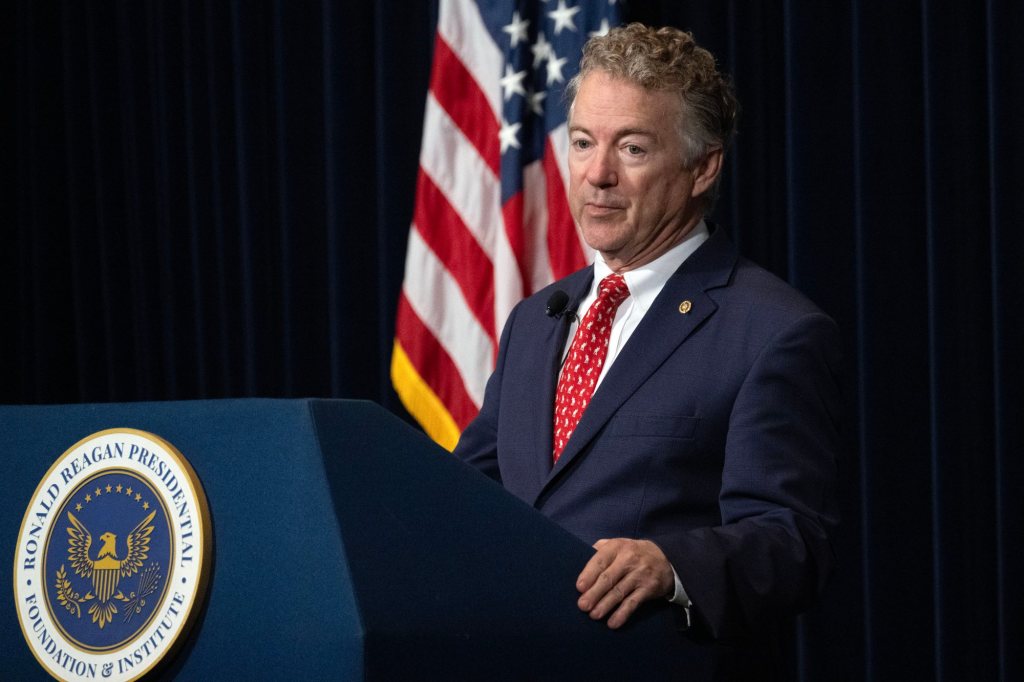
The Republican party, led by President Trump, has decided that growth is no longer a priority. This is evident in the president’s trade war, the minimal opposition among Republican members of Congress, and the seemingly endless supply of bad policy ideas that will do little to support growth.
In the years leading up to the global pandemic, the US economy was on the upswing. Growth had strengthened, and unemployment rates were bottoming out. The right mix of deregulation and tax reform alongside relatively stable global geopolitics showed that the US economy could go a few more rounds. Even in the wake of the deadly pandemic and the costly inflation cycle, the US has outperformed other major economies and continues to benefit from tight labor markets and an investment climate that drives business dynamism and higher living standards.
But Republicans are all too satisfied to take this situation and turn it on its head.
The president’s approach, so far, has been to challenge the prospects of sustained growth with a threat of recession. He has done so in three ways.
The first, and most obvious, is his trade war. My colleagues at Tax Foundation estimate that his tariffs and the responses from other countries will shave off nearly 1 percent of GDP in the long run. In just 2025, it is a more than $100 billion tax hike on Americans. Higher tariffs limit choices for consumers, hurt US manufacturers that depend on critical raw materials and other inputs from abroad, and hit Americans right in their wallets just after a painful inflation episode.
President Trump is not concerned about those negative effects. He thinks Americans should buy fewer things, that little girls should be happy with fewer dolls. He ignores the fact that the US economy has strengthened, not weakened, in the context of strong trade relationships.
Second, the president has threatened the future of the US as a place that supports radical innovations. His immigration policy and his administration’s stance on basic research funding suggest that he’d be perfectly fine if the US were to cede to some other nation its competitive advantage of being the best place in the world to be an inventor.
Third, the administration seems perfectly happy to create chaos. Uncertainty is a fact of life, but policymakers should aim to create stability where possible. However, the governing coalition of Republicans is unreliable. The trade policies change weekly, if not daily, the administration’s approach to our allies is zero-sum and unpredictable, and Republican lawmakers in Congress have shown a paucity of countervailing efforts.
It is obvious, then, that growth is not the priority. Even the good ideas for continued deregulation or extending pro-growth tax policies pale in comparison to the economic harm that the president is inflicting.
Republican lawmakers cannot be taken seriously on growth when only a few Republican senators have crossed the aisle to vote with Democrats to denounce President Trump’s trade war. Senator Rand Paul of Kentucky has been lonely among his Republican colleagues before, but these times have required a new level of resolve.
In the House of Representatives, lawmakers seem intent on following the president’s priorities for tax relief on narrow constituencies like tipped workers. It would be a mistake to prioritize those over permanent policies that support business investment.
A pro-growth version of tax reform alongside an aggressive deregulatory agenda and fiscally responsible spending cuts could change the discussion. Especially so if Republican leaders, including President Trump, pivot on their anti-growth policy mix by reversing the massive tariff increase, supporting innovation through investment and immigration, and creating stability.
Such a scenario is wildly improbable. The most optimistic case is that a pro-growth policy mix elsewhere will offset the negative impacts of the president’s trade war and his disruptive leadership.
Republicans are simply not governing as a pro-growth majority. Instead, they are talking about outcomes they believe they can achieve without focusing on growth: national sovereignty and stable work for millions of households.
Unfortunately, neither is achievable without a growing economy.
For years, a growing chorus of leaders have staked out opposition to economic growth. Until recently, the anti-growth theme was more commonly heard in Europe than in the US. But leaders of the “de-growth movement” likely would not have guessed they would have an ally in President Trump and in his Republican accomplices in Congress.
The pro-growth minority, however small, must continue to denounce the current approach. Growth, built on smart fiscal and regulatory policy choices, must win the day. Otherwise, we will face an even higher-debt, higher-cost future that we simply cannot afford.
Daniel Bunn is President & CEO of the Tax Foundation.



